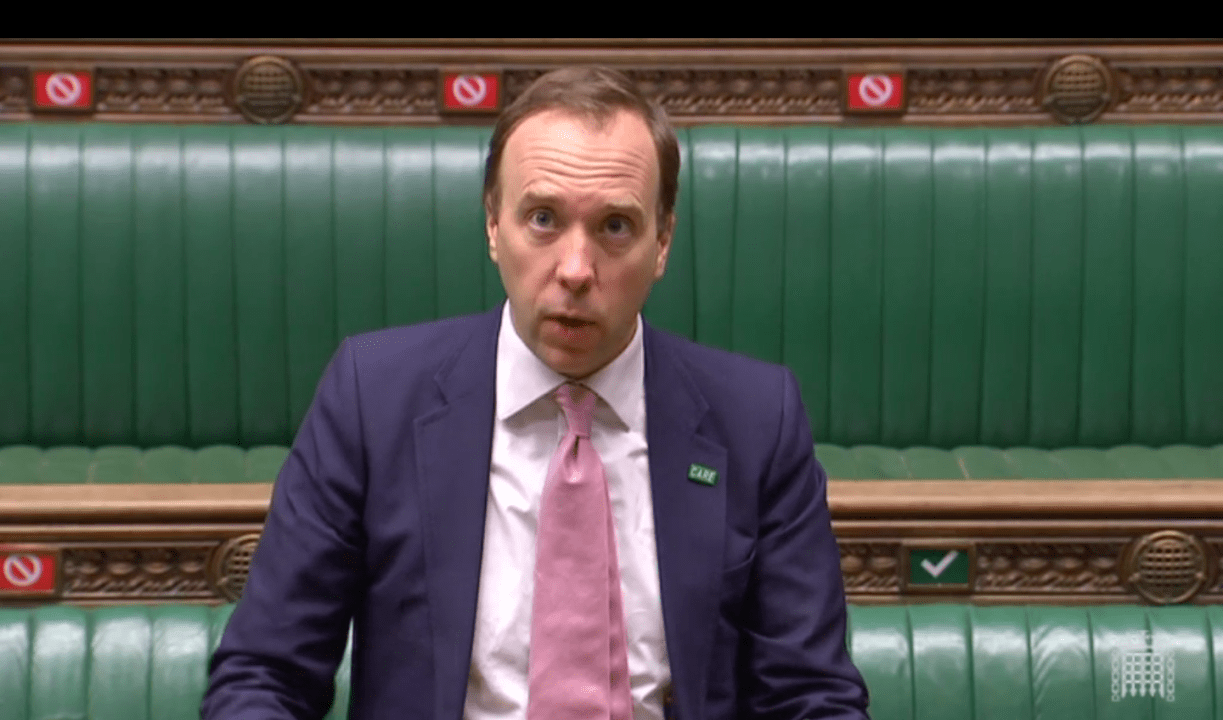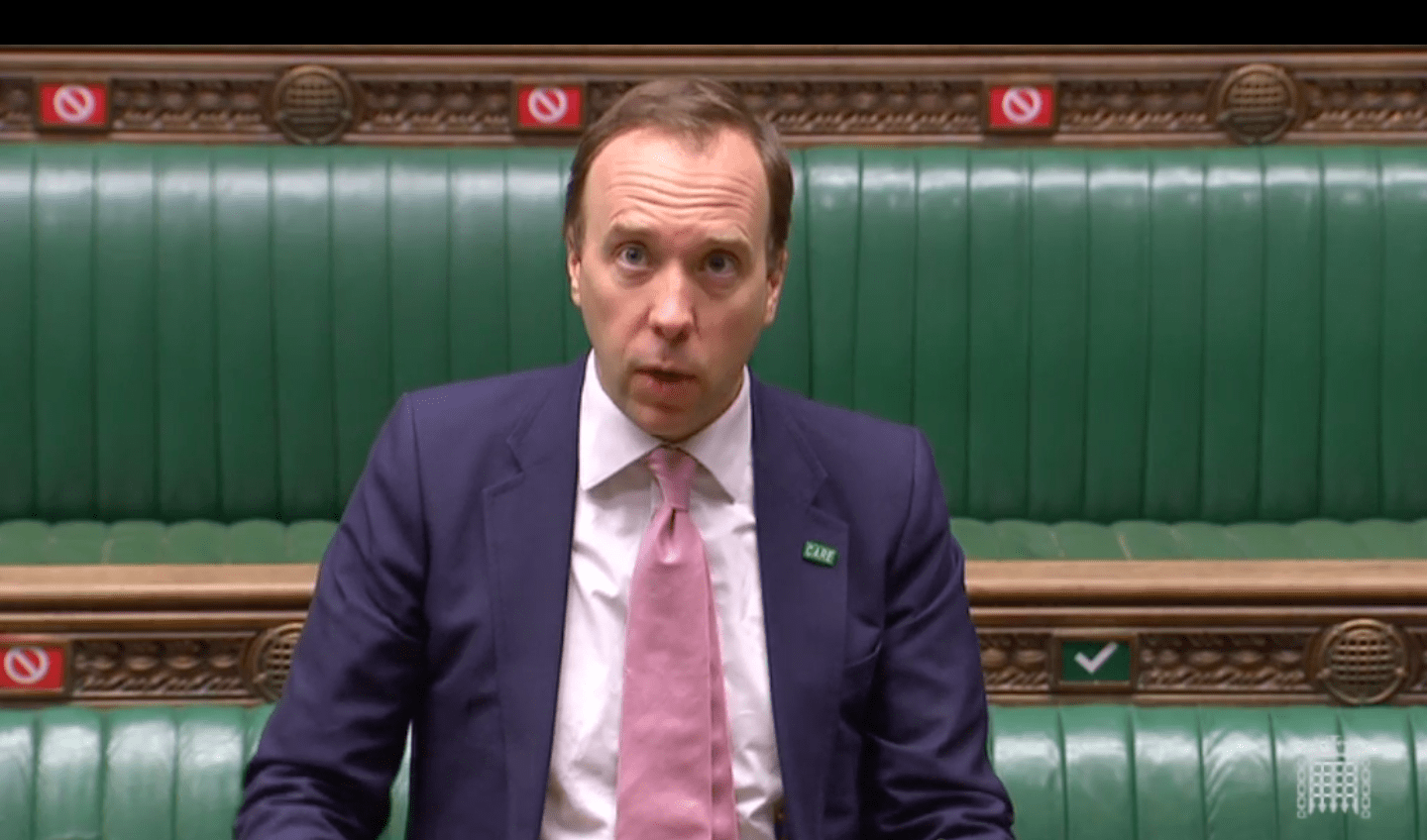Matt Hancock has the air of a student who, having boasted about how great their final dissertation will be, has just realised that they have days to research and write the whole thing. When asked if he is going to meet his target of 100,000 daily tests for coronavirus by the end of the month, the Health Secretary continues to insist that he will, while struggling to explain how.
He gave a statement in the new hybrid Commons this afternoon in which he was repeatedly questioned both by MPs who were in the Chamber and those on video link about what was going wrong with the testing target. He struggled to give any answer beyond that the government was steadily increasing capacity and that the UK was one of the first countries in the world to develop a test. The government had, he argued, kept ‘its foot on the gas’ on this matter.
One of the grumbles among Hancock’s colleagues is that he seems to have come up with the 100,000 target by himself and to that end Greg Clark probed him on where the number had come from, asking:
It’s important that decisions should be informed by good advice. So has the scientific advisory group for emergencies (SAGE) advised on whether the 100,000 tests a day target is the right one?
The government could miss its target for actual tests while still having the capacity to carry them out
Hancock replied:
The target set at 100,000 was because that is what we estimated was needed, there was scientific advice provided into that target but also what is practically achievable. As I said, we are ahead of our trajectory on capacity but we need to make sure that demand increases. Increasing demand is about widening access to this testing. We did take scientific advice, I’m not sure whether that came directly through the SAGE route or directly from Public Health England but of course these decisions are based on the science.
The problem, as has been pointed out by a number of MPs today, is that health and care workers currently have to travel to the testing sites, which isn’t practical at the end of a long shift, or if they don’t have a car, given people with potential symptoms are not supposed to use public transport. So the government is indeed increasing its capacity to test each day, but it has struggled to match that with the logistics that make it possible for those tests to be used. This is less about the science and more about planning – and the government could miss its target for actual tests while still having the capacity to carry them out.
But Hancock also struggled on another matter, which was why the UK government is telling people with symptoms to isolate for seven days when the World Health Organisation says they should remain in quarantine for 14. Once again, his answer was that he had been guided ‘by the science’, but it’s not clear why the science differs from country to country, particularly given how severe the UK’s outbreak has been.
As with today’s Prime Minister’s Questions, the tone of questioning from MPs was largely constructive, though we saw the first angry outburst from a backbencher: Barry Sheerman described himself as ‘cross’ and ‘angry’ and told Hancock that the government’s response so far has been ‘shambolic’. Sheerman can be quite bombastic in the chamber at the best of times and Hancock scolded him for misjudging the tone. But he is unlikely to be the last MP to break with the muted tone that most are adopting.








Comments